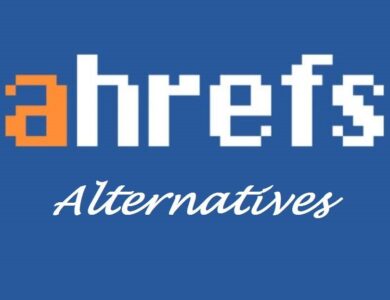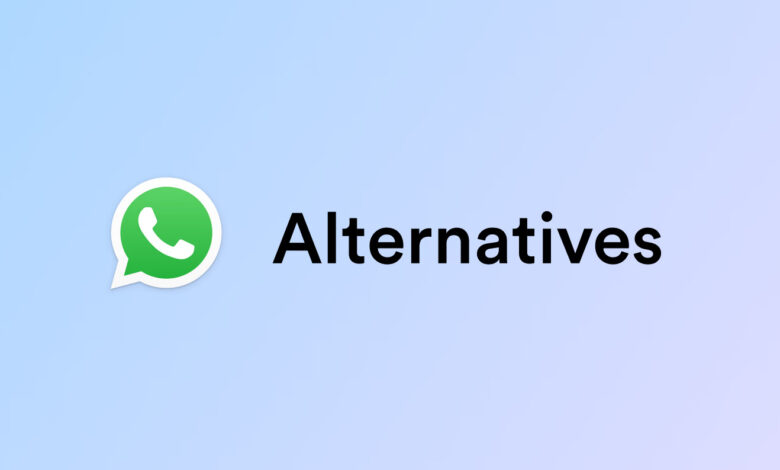
WhatsApp has over 2 billion users. It is popular because it is free, works on all devices, and is easy to use.
But many people are leaving WhatsApp because of privacy problems. The company was fined €5.5 million for breaking privacy rules.
WhatsApp also made users accept a new privacy policy or stop using the app. This made many users lose trust in WhatsApp and look for other apps that protect their privacy.
Some users also want better features for their needs, like working with teams, sharing large files, and having meetings.
We looked at different apps that can replace WhatsApp. We picked the best ones based on their features, privacy, and performance.
Before we list the best options, let’s go over the important things to think about when choosing a WhatsApp alternative.
When choosing a WhatsApp alternative, here are some things to think about
- Encryption: The app should keep your chats private, only visible to you.
- Text and Calls: The app should let you send messages and make calls.
- File Sharing: You should be able to send pictures, videos, and files easily and safely.
- Compatibility: The app should work on phones and on computers (iOS, Android, desktop, or web).
- Pricing: The app should be free or cheap. But paying for extra privacy is okay.
- User Base: Make sure enough people in your area use the app so you can chat with friends and family.
List of 14 Alternatives to WhatsApp for Messaging
1. Facebook Messenger
You can send messages, make calls, and share files. It also has games and other fun features, but it’s tied to Facebook.
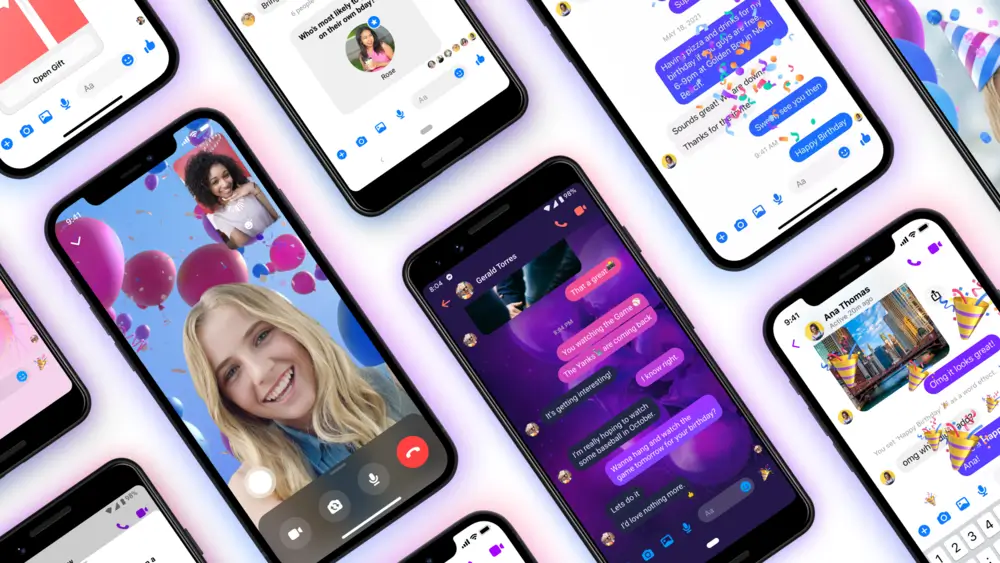
Introduction
Facebook Messenger is a free app for sending messages and making calls. It works with Facebook accounts, but you don’t need to be on Facebook to use it.
Features
Messenger allows you to send text messages, make voice and video calls, and share photos, videos, and files. You can also send voice messages and make group chats. It has fun features like stickers, games, and a “watch together” feature for videos. You can also send money using the app in some countries.
Pros
It is easy to use and connects to Facebook. It works on both iPhones and Android phones. You can message anyone, even if they are not on Facebook. It’s free and has many features like games, stickers, and video calls.
Cons
You need a Facebook account to use Messenger, and the app collects a lot of data. Some people may find this privacy concern important. It can also use a lot of phone battery.
2. Signal
Known for privacy. It offers secure messages and calls, and everything is encrypted to keep your conversations safe.
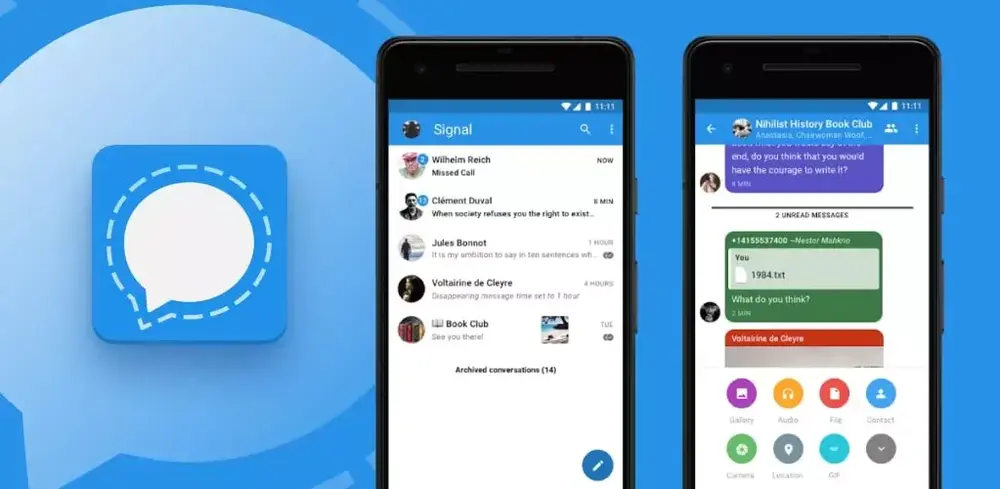
Introduction
Signal is a free app for messaging and calling, known for its strong focus on privacy. It is available for both Android and iPhone users and is a good alternative to WhatsApp for secure communication.
Features
Signal offers text messaging, voice calls, and video calls. It also lets you send photos, videos, and files. All messages and calls are encrypted, meaning only you and the person you’re talking to can see or hear them.
Signal also has a feature called “disappearing messages,” where messages can be set to automatically delete after a certain time.
Pros
Signal is very secure and private. It does not collect your data or track your activity. It is free to use and works on both mobile phones and computers. It’s also easy to use and has a clean design.
Cons
Since Signal focuses on privacy, it doesn’t have as many extra features as other apps like stickers or games. Some people also find it harder to set up because it needs a phone number.
3. Slack
Mainly for work. It helps teams communicate through messages, calls, and file sharing in a group setting.
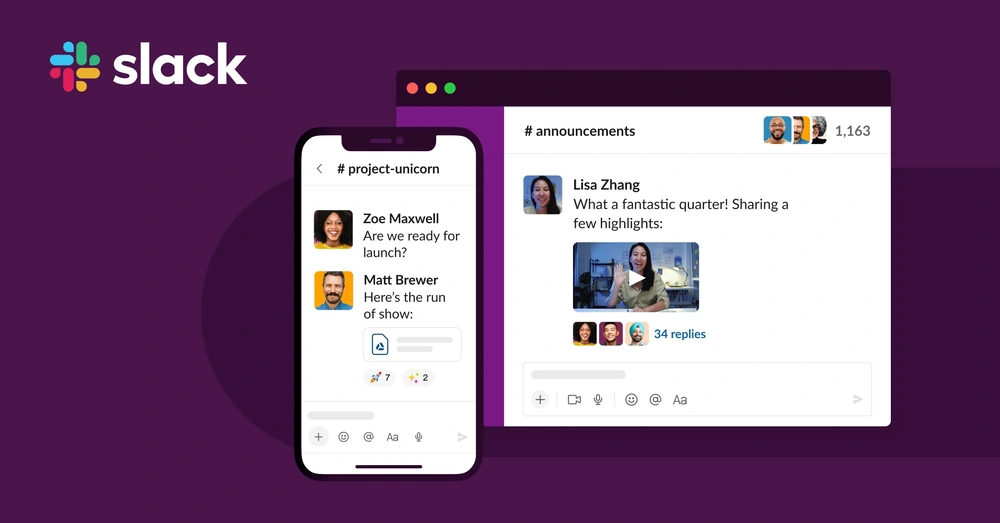
Introduction
Slack is a messaging app designed for work. It helps teams communicate and work together on projects. It’s great for businesses and groups that want to stay connected and share information easily.
Features
Slack lets you send messages, make voice and video calls, and share files like documents, images, and links. It also has channels, which are separate rooms for different topics or teams, where you can chat with specific groups.
You can use emojis and reactions to respond to messages. Slack integrates with many other work tools, like calendars and project management apps.
Pros
It’s very organized, with channels for different projects or teams. You can easily find and share information. Slack supports both text and voice communication, which makes it versatile. It’s easy to use and helps teams stay connected.
Cons
Slack can be overwhelming with notifications, especially if you’re in many channels. It may require some training for new users to fully understand its features. It also needs a reliable internet connection to work well.
4. Telegram
Offers private chats, group chats, and channels. It’s fast and has a lot of fun features like stickers and bots.
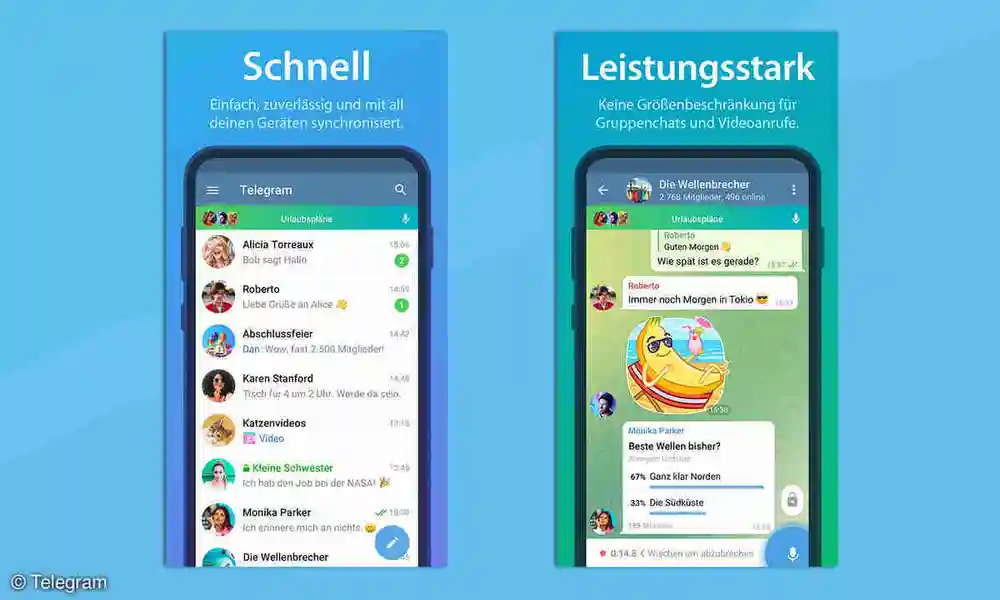
Introduction
Telegram is a free messaging app that focuses on speed and security. It works on both Android and iPhone phones, as well as on computers. Telegram is known for being fast and offering many extra features.
Features
Telegram allows you to send text messages, make voice calls, and send photos, videos, and files. You can also create group chats with up to 200,000 members.
It has secret chats with end-to-end encryption, meaning only you and the person you are chatting with can read the messages.
Telegram also supports channels, where you can broadcast messages to many people at once.
Pros
Telegram is fast and easy to use. It offers large group chats and channels, making it good for businesses and large communities. The app is free, and it has lots of fun features like stickers, bots, and customizable themes.
Cons
Telegram doesn’t have as much encryption as some other apps, which may be a concern for people who want extra privacy. Some people may find its extra features unnecessary.
5. Kik Messenger
A messaging app for chatting with friends. It doesn’t require a phone number to sign up, just an email.
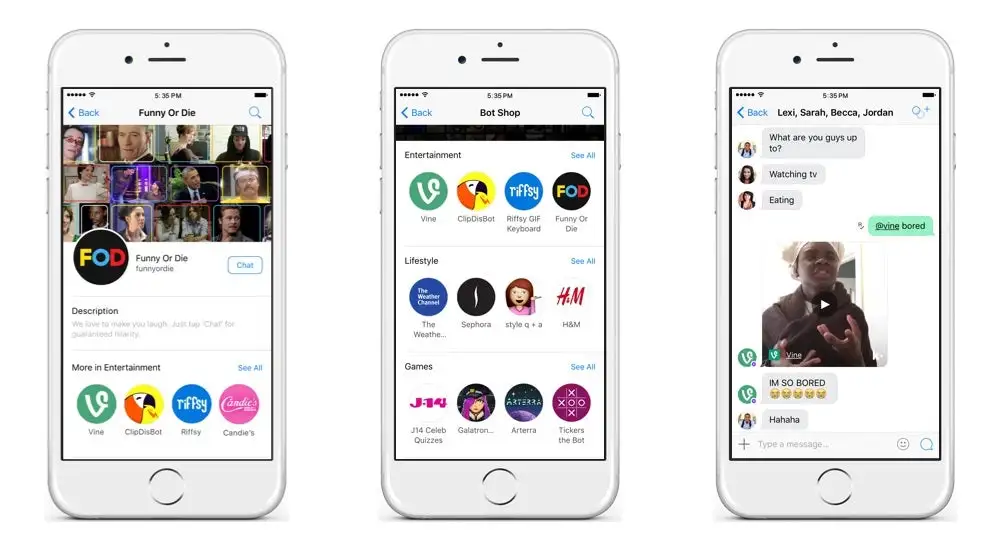
Introduction
Kik Messenger is a free app that lets you chat with friends and strangers. It is available on both Android and iPhone. Kik is popular for its simplicity and fun features.
Features
Kik allows you to send text messages, images, videos, and gifs. You can also create group chats and use the app to chat with strangers through a feature called “Public Groups.”
Kik does not require a phone number to sign up, just an email address. It also has a built-in web browser to explore websites without leaving the app.
Pros
Kik is easy to use and doesn’t need a phone number. It’s great for chatting and making new friends. The app also has fun features like stickers, bots, and games. It’s free and works on both mobile phones and tablets.
Cons
Since Kik lets you talk to strangers, it can be risky, especially for younger users. It also has ads, which some people find annoying. The app may not be as secure as other messaging apps.
6. Skype
Famous for video calls. You can also send messages and make voice calls. It’s good for personal and work use.
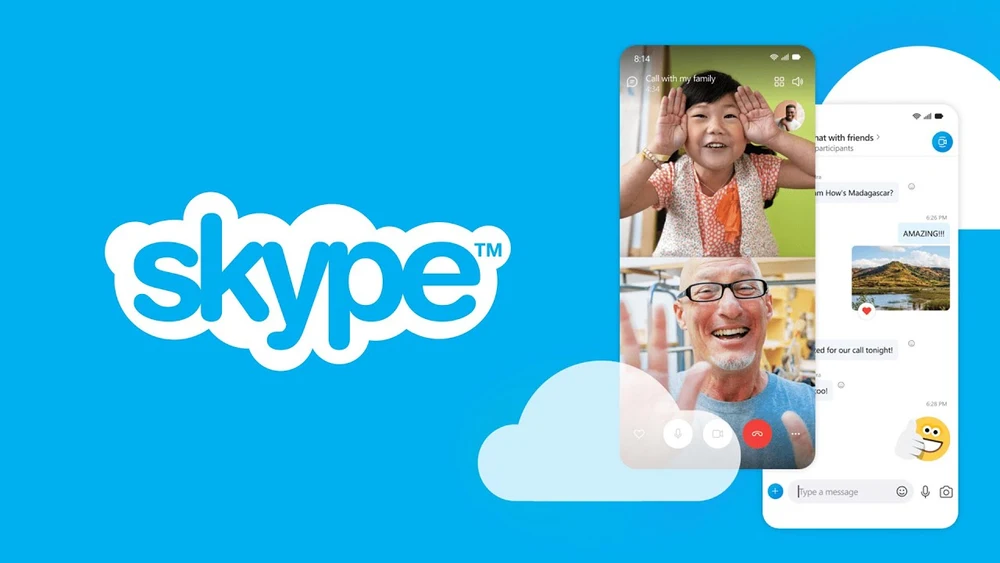
Introduction
Skype is a popular app for making video and voice calls, as well as sending messages. It works on both Android and iPhone, as well as on computers. Skype is often used for personal chats and business meetings.
Features
Skype allows you to send text messages, make voice calls, and have video calls with people around the world. You can share photos, videos, and files.
Skype also lets you call landlines and mobile phones for a fee. It offers group calls and can be used on different devices, including computers and tablets.
Pros
Skype is very easy to use and has good video and voice call quality. It is free for calls between Skype users, and you can call regular phones at low rates. It’s available on many devices and great for both personal and professional use.
Cons
Skype needs a good internet connection for clear calls. It can be slow on older devices. Some people find the ads annoying, and calling landlines requires paying extra fees.
7. Viber
Let’s you send texts, make calls, and send files. It also has fun stickers and group chats.
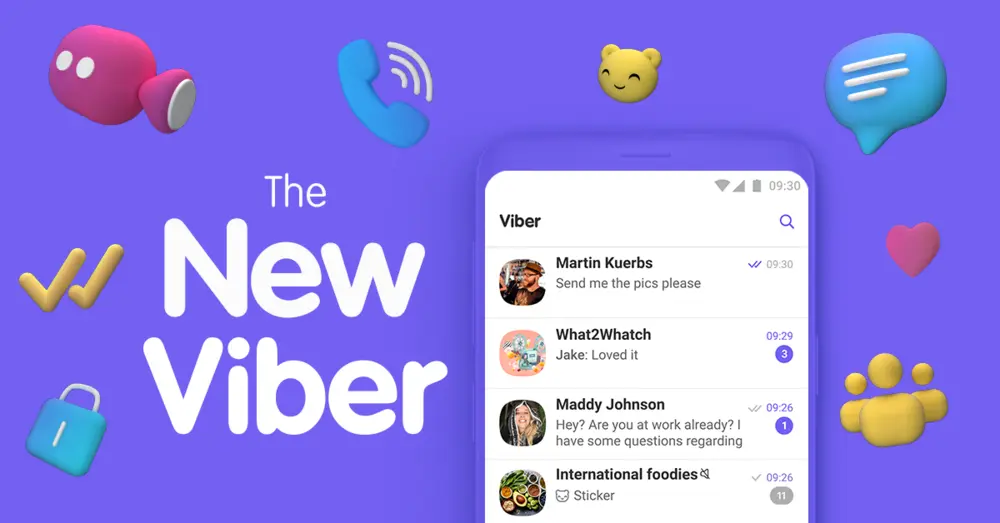
Introduction
Viber is a free messaging and calling app that works on both Android and iPhone. It is used for texting, voice calls, and video calls, and is known for its clear call quality.
Features
Viber allows you to send text messages, voice messages, and make voice or video calls. You can share photos, videos, and files.
It also offers group chats, and a feature called “Viber Out,” which lets you call landlines and mobile phones at low rates. Viber has stickers and fun emojis to make chatting more enjoyable.
Pros
Viber is free to use for texting and calling other Viber users. It provides high-quality voice and video calls. You can make group chats and send a variety of media. It also works on both mobile phones and computers.
Cons
Viber’s “Viber Out” feature costs extra for calling landlines or mobile phones. The app uses a lot of data, so it may not be ideal if you have a limited data plan.
8. WeChat
Popular in China. You can send messages, make calls, and even pay bills using the app.
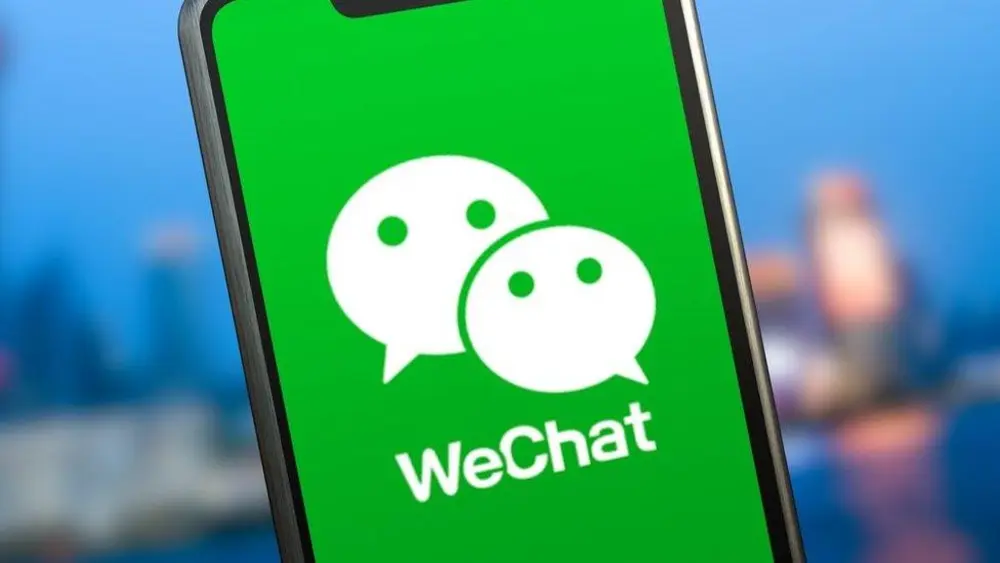
Introduction
WeChat is a messaging app mostly used in China, but it’s also popular in other parts of the world. It allows users to chat, make calls, and use many extra features in one app.
Features
WeChat lets you send text messages, make voice and video calls, and share photos, videos, and files. You can also send money to people, pay bills, and shop online through the app.
WeChat has a feature called “Moments,” where you can post updates, pictures, and videos for your friends to see. It also offers mini programs, which are small apps that can do things like order food or book a taxi.
Pros
WeChat is a one-stop app for messaging, calling, paying bills, and shopping. It’s very popular, especially in China, and easy to use. It works on both mobile phones and computers.
Cons
WeChat collects a lot of personal data, which can be a privacy concern. It’s also harder to use outside of China because many of its services are country specific.
9. Snapchat
Focuses on sending photos and videos that disappear after viewing. It’s popular for its fun filters.
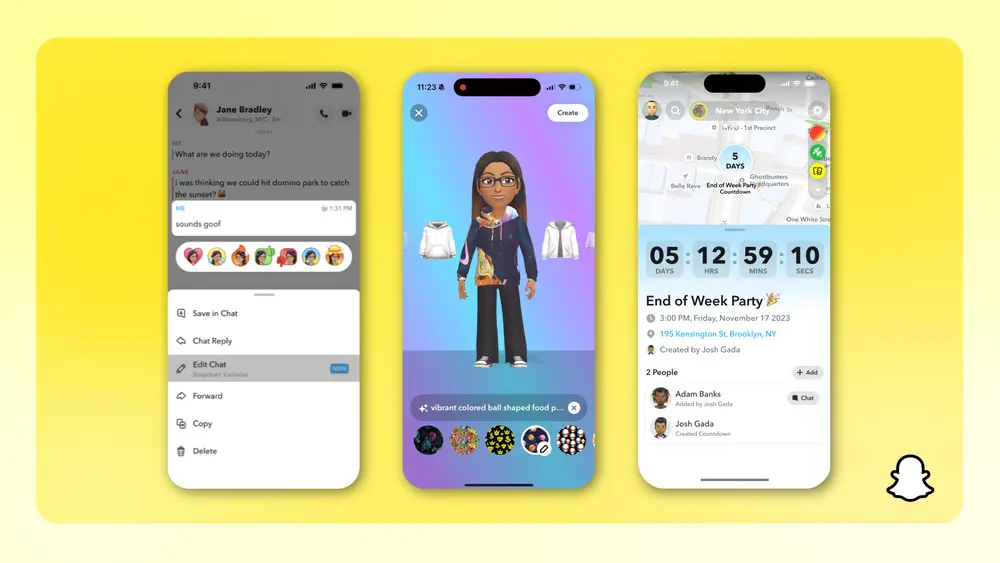
Introduction
Snapchat is a fun and popular app for sending photos and videos that disappear after they are seen. It is mainly used by younger people and is available on both Android and iPhone.
Features
Snapchat allows you to send photos, videos, and messages that automatically disappear after being viewed. You can add filters, stickers, and effects to your photos and videos.
It also has “Stories,” where you can post pictures or videos that your friends can view for 24 hours. There is also a feature called “Snap Map,” which lets you see where your friends are located.
Pros
Snapchat is fun and creative with many filters and effects. It’s great for sending quick, temporary messages. The app is easy to use and very popular for sharing moments with friends.
Cons
Snapchat may not be ideal for older users who prefer permanent messaging. The disappearing messages could also be risky, as they might encourage less privacy. Some people may find the app confusing at first.
10. Discord
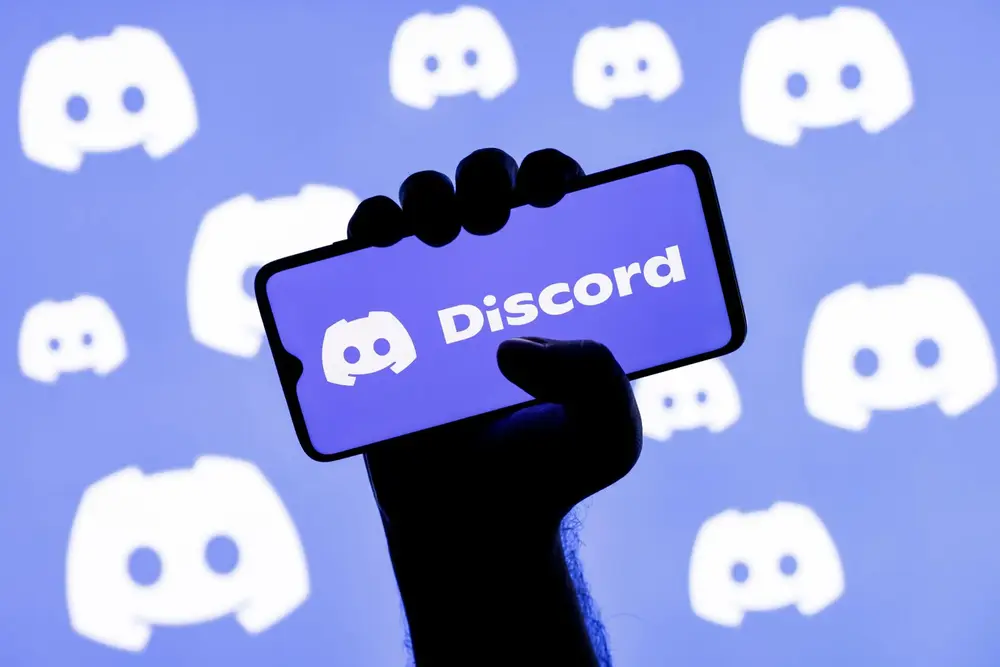
Great for chatting while playing games. You can send text messages, make calls, and create servers for groups.
Introduction
Discord is an app mainly used for voice and text chatting, especially by gamers. It is available on both Android and iPhone, as well as on computers. It helps people communicate while playing games or working on projects together.
Features
Discord lets you send text messages, make voice and video calls, and share files. You can create “servers” for different groups or interests, like a gaming team or a study group.
Within these servers, you can make channels for different topics. Discord also has bots that can help with things like playing music or managing the server.
Pros
Discord is great for group chats and voice calls, especially for gamers. It’s free and allows you to create large communities.
It’s easy to use and has many features like screen sharing, gaming integrations, and music bots.
Cons
Discord can be overwhelming because of the many features and notifications. It requires a stable internet connection for good call quality, and some users find the app too complicated to set up at first.
11. Lark
A team-focused app. You can chat, make video calls, and share files, all in one place for work or projects.
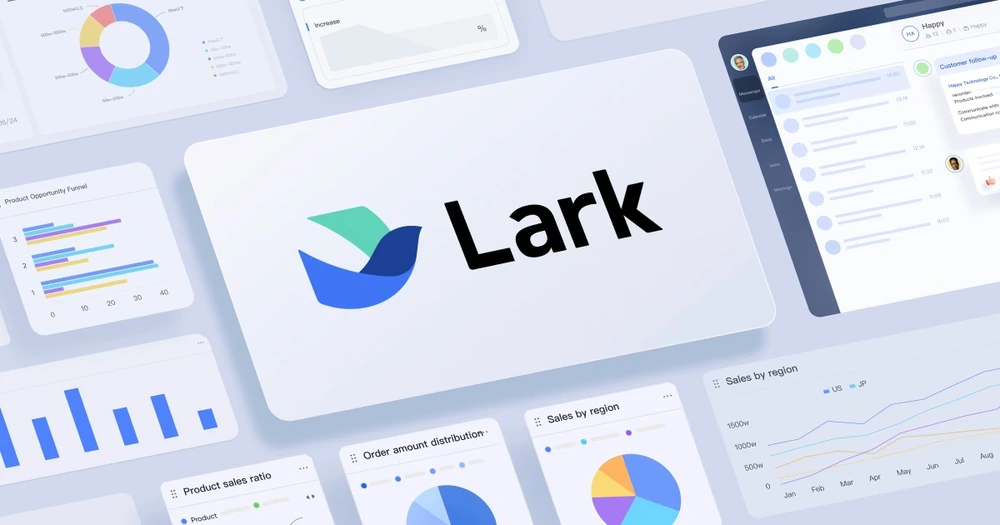
Introduction
Lark is a free app for team communication and collaboration. It helps people work together on projects, share files, and communicate easily. It works on both Android and iPhone, as well as on computers.
Features
Lark has messaging, voice and video calls, and file-sharing features. You can create different channels for groups and topics.
It also includes calendar tools, task management, and document collaboration, where multiple people can work on the same file at the same time. Lark has integrated apps like notes, cloud storage, and a meeting scheduler.
Pros
Lark is a good all-in-one tool for teams to stay organized. It has many features for communication and collaboration, all in one place.
It’s free to use and works on different devices, which is great for remote teams.
Cons
Lark may have more features than some people need, which can make it overwhelming. It might take time to learn all its tools, especially for new users.
12. Threema
A privacy-focused app. It has end-to-end encryption and doesn’t require a phone number to use.
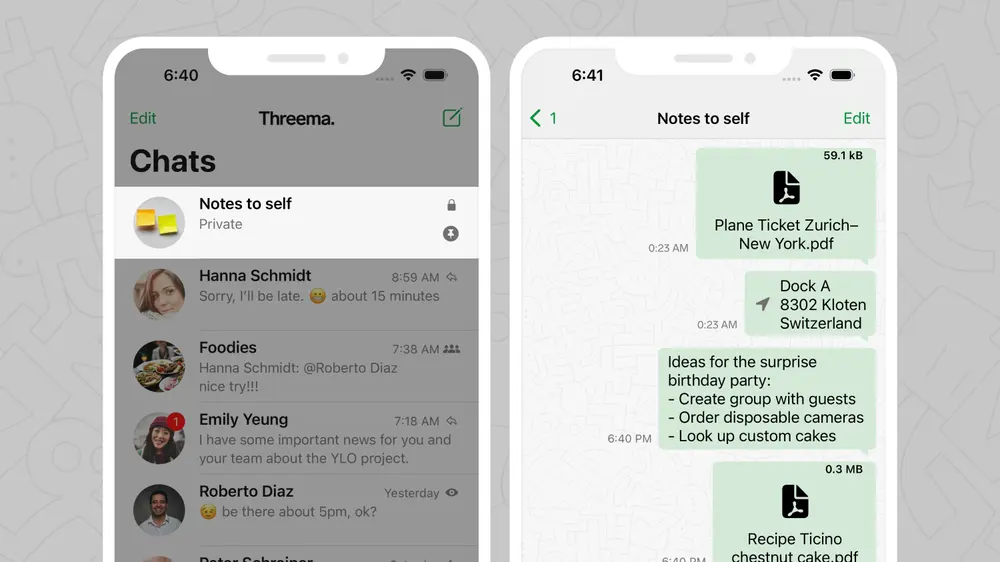
Introduction
It is a messaging app focused on privacy and security. It is available for both Android and iPhone.
It is great for people who want to keep their messages safe from hackers or third parties.
Features
It lets you send text messages, make voice and video calls, and share files like photos and videos. It uses end-to-end encryption, which means only you and the person you’re talking to can read or hear the messages.
It doesn’t require a phone number or email to sign up, which helps keep your identity private.
Pros
It is very secure and protects your privacy. It’s simple to use and doesn’t track your activity. You don’t need a phone number to use it, making it more anonymous. It’s good for people who value privacy.
Cons
It is not free. You have to pay to download it, which some people may not like. It also has fewer fun features like stickers or games compared to other apps.
13. Line
Popular in Asia. It lets you send messages, make calls, and use stickers. It also has a timeline like Facebook.
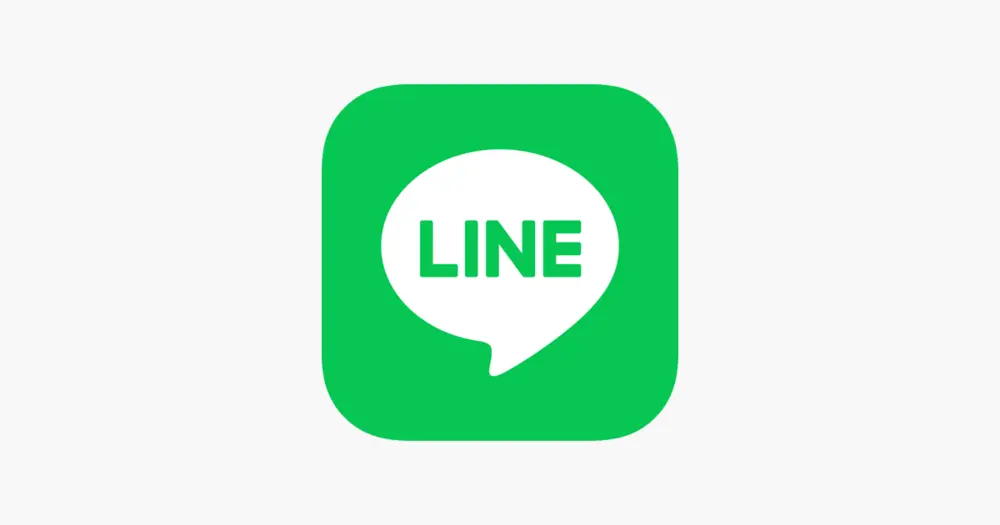
Introduction
Line is a messaging app popular in Asia, especially Japan. It allows users to send messages, make calls, and share media. Line works on Android, iPhone, and computers, and is easy to use.
Features
Line lets you send text messages, make voice and video calls, and share pictures, videos, and files. It has a feature called “Line Pay” to send money or make payments.
You can also create group chats, share your location, and use stickers and emojis to make conversations fun.
There is a timeline feature where you can post updates and photos for your friends to see.
Pros
Line is easy to use and has many fun features, like stickers and a payment system. It works on multiple devices, and you can make free calls and send messages to anyone using Line.
Cons
Line collects a lot of personal data, which can be a concern for privacy. Some people find it too focused on fun features, making it less useful for serious communication.
14. Element
Element is a secure messaging app that focuses on privacy. It works on Android, iPhone, and computers. It is mainly used by people who want strong security for their messages and calls.
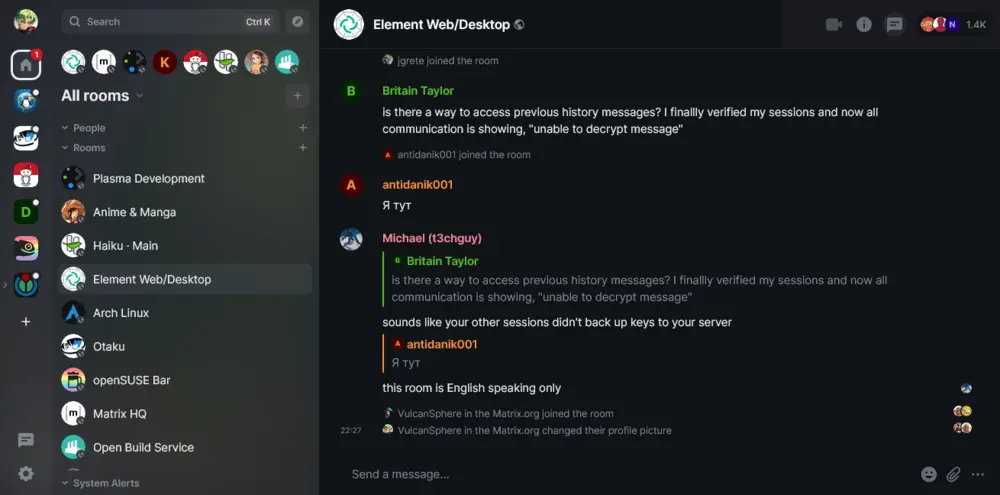
Features
Element lets you send text messages, make voice and video calls, and share files. It uses end-to-end encryption, which means your messages are safe from anyone except the person you’re talking to.
Element also allows you to create private rooms or groups for chatting. It supports communication with other apps that use the Matrix protocol, making it easy to connect with people on different platforms.
Pros
Element is very secure and protects your privacy. It’s free to use and has features for both personal and team communication. It works across different devices, and you can also send encrypted messages.
Cons
Element may be difficult for new users to set up and understand. It doesn’t have as many fun features like stickers and games compared to other apps.





